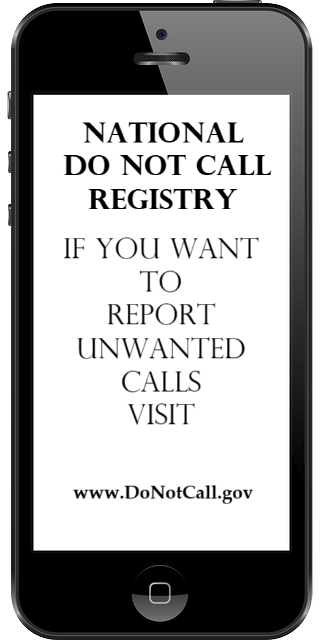Chapter 1: The Dream Rental
Sarah Parker had just landed her dream job in San Francisco. Excited and ready to move, she began searching for a rental apartment online. The city’s high rent prices were daunting, but she was determined to find something affordable. After days of searching, she stumbled upon a beautiful listing in a prime location. The apartment had everything she wanted: a spacious living room, a modern kitchen, and a charming balcony, all for a price that seemed almost too good to be true.
The listing had a few typos and seemed hastily written, but Sarah brushed it off. She immediately contacted the poster, eager to secure the deal.
Chapter 2: The Red Flags
Sarah received a prompt reply from “Mark,” who claimed to be the landlord. He explained that he was currently living abroad due to work commitments and couldn’t meet her in person. However, he assured her that she could move in immediately. He even offered a video walkthrough of the property, which seemed genuine.
Mark mentioned he needed a security deposit and the first month’s rent to hold the apartment for her. He insisted that time was essential since many other interested renters were interested. This urgency made Sarah anxious, as she didn’t want to miss out on such a fantastic deal.
Despite her initial excitement, a few things started to feel off:
- No In-Person Meeting: Mark’s inability to meet in person made Sarah uneasy. She requested a live video tour, but Mark only sent a pre-recorded video.
- Immediate Move-In Without Viewing: Mark encouraged Sarah to move in immediately without seeing the apartment in person.
- Upfront Payment Request: He insisted on a security deposit and first month’s rent before signing any lease.
Chapter 3: The Decision
Sarah hesitated, recalling advice she had read about rental scams. She decided to investigate further before making any payments. She searched for similar listings and found identical photos of the apartment on multiple websites, with different contact names and prices. This raised a significant red flag.
Sarah also noticed that the listing’s price was well below the area’s market rate, another warning sign she remembered reading about. She decided to confront Mark with her findings.
Chapter 4: Confrontation
Sarah emailed Mark, expressing her concerns and asking for more proof of legitimacy. She requested a copy of his ID and additional documentation proving his property ownership. Mark’s response was evasive. He reiterated the urgency of securing the apartment and deflected her questions, making Sarah more suspicious.
Determined to uncover the truth, Sarah contacted the property management company listed in Mark’s pre-recorded video. To her dismay, they confirmed that they had yet to record Mark owning or managing the property.
Chapter 5: The Revelation
Realizing she was being scammed, Sarah ceased communicating with Mark and reported the listing to the website where she found it. She also reported the incident to the Federal Trade Commission (FTC) and the Internet Crime Complaint Center (IC3).
Chapter 6: Lessons Learned
Sarah’s experience taught her valuable lessons about avoiding rental scams:
- Verify Identities: Always verify the landlord’s or property manager’s identity. Use identity verification tools if necessary.
- See the Property in Person: Only agree to rent a property after seeing it in person or having a trustworthy person view it.
- Avoid Upfront Payments: Do not send money before signing a lease and verifying the legitimacy of the property and its owner.
- Research Market Rates: Be wary of prices significantly lower than the market rate—research to understand the typical rent for similar properties in the area.
- Inspect Listings Carefully: Be cautious of listings with poor grammar, typos, and excessive punctuation, as these can be signs of a scam.
Chapter 7: Prevention Tips
To avoid falling victim to rental scams, renters should:
- Thoroughly Vet Listings: Use trusted rental platforms and check for red flags.
- Meet Landlords in Person: Ensure you meet the landlord or property manager and feel comfortable with them.
- See the Property: Verify that the property exists and matches the description in the listing.
- Avoid Rushed Decisions: Don’t let anyone pressure you into making quick decisions or payments.
- Check Documentation: Ensure the lease is complete and all terms are clearly stated before signing.
Chapter 8: What to Do If Scammed
If you become a victim of a rental scam, take immediate action:
- Contact Local Authorities: Report the scam to the police.
- Report to Listing Websites: Ensure fraudulent listings are removed and scammers are flagged.
- Report to the FTC and IC3: The FTC and IC3 can help manage and resolve internet scams and protect future renters from similar frauds.
Epilogue: Awareness and Vigilance
Sarah’s near-miss with a rental scam highlighted the importance of awareness and vigilance in the rental market. By sharing her story and these tips, she hoped to help others avoid the same pitfalls and find their dream homes safely.
We at SecureCyberNetwork are dedicated to providing you with the latest updates, tips, and expert advice to keep you safe in the digital world.
Your commitment to staying informed is about your safety, the safety of your loved ones, and the safety of our community.
Your involvement is powerful.









